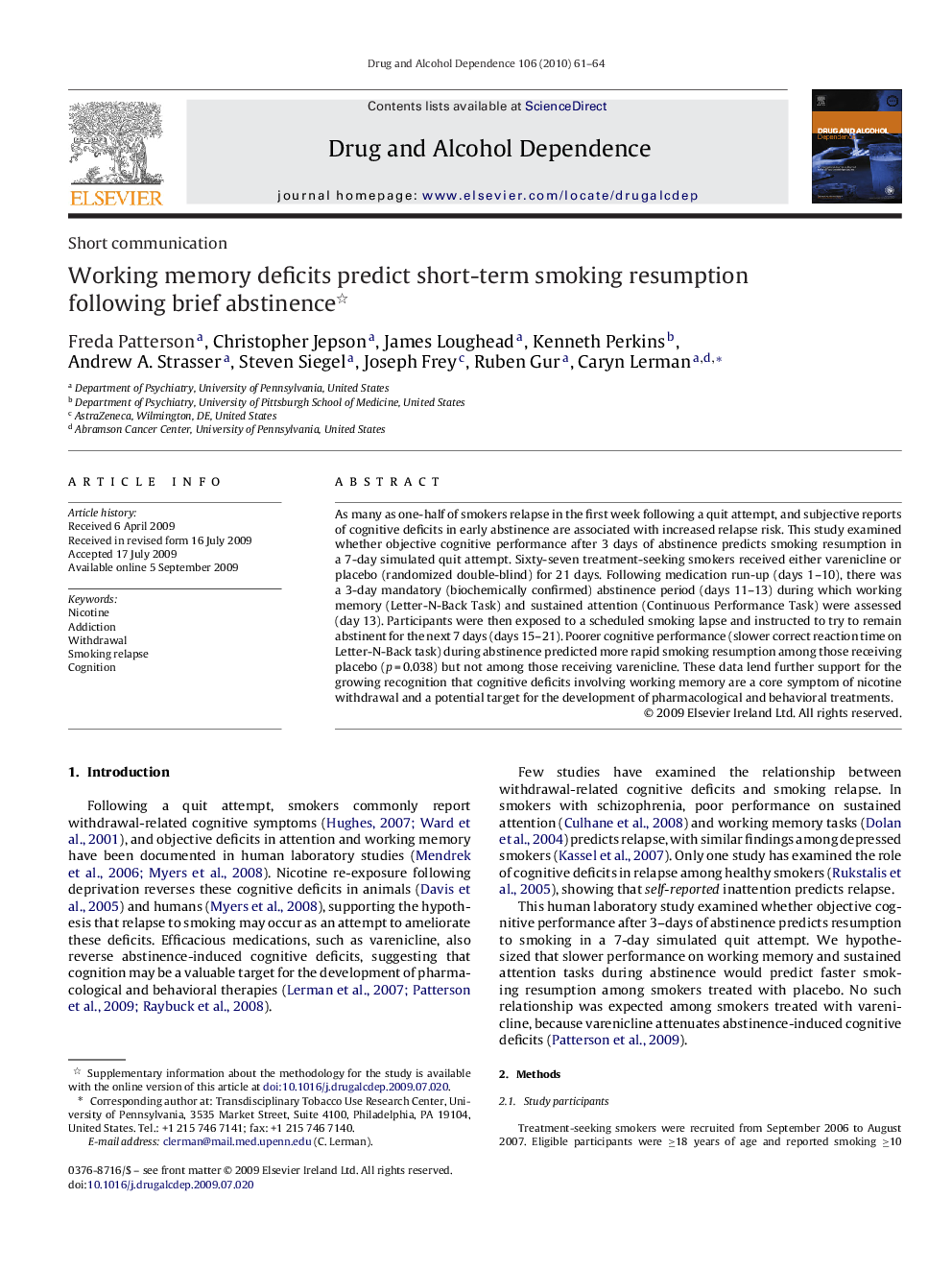| Article ID | Journal | Published Year | Pages | File Type |
|---|---|---|---|---|
| 1070539 | Drug and Alcohol Dependence | 2010 | 4 Pages |
Abstract
As many as one-half of smokers relapse in the first week following a quit attempt, and subjective reports of cognitive deficits in early abstinence are associated with increased relapse risk. This study examined whether objective cognitive performance after 3 days of abstinence predicts smoking resumption in a 7-day simulated quit attempt. Sixty-seven treatment-seeking smokers received either varenicline or placebo (randomized double-blind) for 21 days. Following medication run-up (days 1-10), there was a 3-day mandatory (biochemically confirmed) abstinence period (days 11-13) during which working memory (Letter-N-Back Task) and sustained attention (Continuous Performance Task) were assessed (day 13). Participants were then exposed to a scheduled smoking lapse and instructed to try to remain abstinent for the next 7 days (days 15-21). Poorer cognitive performance (slower correct reaction time on Letter-N-Back task) during abstinence predicted more rapid smoking resumption among those receiving placebo (p = 0.038) but not among those receiving varenicline. These data lend further support for the growing recognition that cognitive deficits involving working memory are a core symptom of nicotine withdrawal and a potential target for the development of pharmacological and behavioral treatments.
Related Topics
Life Sciences
Neuroscience
Behavioral Neuroscience
Authors
Freda Patterson, Christopher Jepson, James Loughead, Kenneth Perkins, Andrew A. Strasser, Steven Siegel, Joseph Frey, Ruben Gur, Caryn Lerman,
